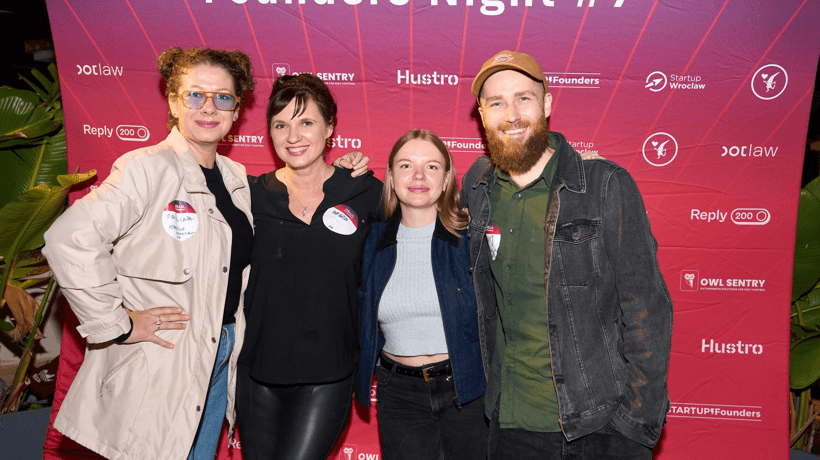A small pavilion at the intersection of Piastowska and Sienkiewicza streets. Games, jigsaw puzzles and other toys in windows. Colourful pinwheels, hula-hoops and a wealth of children’s bibelots in front of the entrance. The shop door is always often, and an elderly man of low height is bustling inside. It is Kazimierz Wojnowski, who has run a shop in this place for a few decades. ‘ It is not an ordinary kiosk,’ reserves Mr Wojnowski.‘You see, I have got normal running water, or even a cellar here,’ he points at a wooden hatch in the backyard. Inside there is a childlike mess; toys, games, pens and copybooks are placed on shelves, and the arrangement system must be known only to the owner himself. Suddenly, a young girl comes in. Mr Wojnowski takes the offensive immediately. ‘What do you need? We’ve got have everything here!’ he assures cheerfully. ‘I’ll take a look around,’ answers the girl. Mr Wojnowski resumes his story.
Entrance through a toy shop
On the outside, Mr Wojnowski’s shop looks really small. Boxes with games that are placed in the shop windows have long become discoloured with the sun, and their titles mean something only to those who remember the world without computer games.
Inside, however, we can still find the assortment that fashionable salons with child’s toys would not consider a disgrace. ' Old? Ooh, absolutely not! Almost every day I travel all around the city and check what’s new. I order a cab, visit a few warehouses, check new items and choose the assortment that can sell in my shop,’ assures Wojnowski.
These words were confirmed by my friend who was looking for Monster Trucks for her son. ‘They had already been sold out in all shops, and my little son kept troubling me because all the other boys in the kindergarten had already got this toy. Then we went to this shop at Piastowska, and my son started to cry when he saw it, because he believed that it wouldn’t be there. But when we went inside, it turned out that all kinds of this toy were there!’ says my friend with rapture. So if some item is no longer available in chain shops, it is worth checking Kazimierz’s shop.
‘At first, when I bought this place from one lady at some time in the 1980s, I sold plants and flowers there. At that time, I was the only person in Poland who had orange trees on stock!’ says Mr Wojnowski. ‘Later I changed this place into an antique shop, but, unfortunately, it did not work out, because you had little chance of succeeding with an antique shop away from the city centre. Later I ran a bookshop, and eventually I decided to sell toys and stationery,’ he tells.
A toy shop is only a ‘cover-up’
‘Actually, it is my office. I didn’t want customers to call and visit me at home, so I direct them here,’ says Mr Wojnowski. What office? In 1970, Mr Kazimierz Wojnowski established the Maria and Kazimierz Wojnowscy Foundation – Jan Kiepura Cultural Centre.
‘If you want to know, I’ll tell you. There is a whole bunch of foundation – one in Warsaw, another in New York, another in Europe, and here is Kazimierz Wojnowski from ul. Piastowska, who had fantasy and knowledge, pushed his thoughts forward into Poland and created his own foundation. It differs from others because all of them were created from contributions of some people. This amount was given by one person and that by another, and here this man you’re talking to [laughs] had his own money and his own fund and hit upon an idea to set up a foundation, support Polish culture and youth and provide aid to victims of floods and other catastrophes,’ tells Mr Wojnowski. Saying this, he pulls out a huge number of briefcases with letters from province governors, city mayors etc. from all regions of Poland from the sea to the mountains, in which they express words of gratitude for help granted to them.

‘You see, it goes like this. I’m sitting here, and suddenly the phone rings,’ saying this, he grabs the receiver. ‘Hello, can I speak to Mr Kazimierz Wojnowski, the president of the foundation? Yes, speaking,’ he answers. ‘Did you watch the news yesterday? I did! So, will you help? I will! ’ After demonstrating this scene, he hangs up and continues. ‘ So, I get into a cab, pay visits to various local enterprises and ask whether they support victims with gifts. Sometimes I get the answer after three days, sometimes after two weeks or a month, but usually they get in touch with me and ask how they can help,’ he says.
A great heart familiar to many
He arranges for gifts and transport on his own. He also travels to the place where help is needed and supervises the unloading operation personally. He helped during floods, fires and other catastrophes that went through Poland. His help was given, for example, to the Kielce region, where he rebuilt a communal library destroyed by a flood and opened a music centre. Apart from that, he sends gifts to many primary schools in Poland.
In 2013, he received the statue of “Friend of Education in the Świętokrzyskie Province” from Małgorzata Muzoł, Education Superintendent of the Świętokrzyskie Province. It is a special distinction reserved for persons who have largely contributed to the development and improvement of quality of education in this province. In the Pierzchnica Commune, from which he comes, he was granted the title of Honorary Citizen for his support given to local schools, which is already counted in hundreds of thousands of PLN. His great heart is also familiar to the sick, the poor and victims of catastrophes from Lithuania, Armenia, Bosnia and Herzegovina or Chechnya.
‘I don’t complain!’
In spite of his age, Kazimierz Wojnowski bursts with energy and optimism. He likes chatting up his customers, who are also willing to continue the conversation. ‘Sir, I came to you yesterday morning and yesterday afternoon, and you were absent!’ complains one of the regular customers of the little shop at Piastowska. ‘Well, you see, I was looking for you,’ replies the owner wittingly. When people ask him: ‘how’s your health?’, ‘how are you?’, ‘how are you feeling?’, ‘how’s your business going?’, he always replies with a smile: ‘I don’t complain!’ And, when asked why he travels and helps so much, he says: ‘A man is worth as much as he can help others.’
Kazimierz Wojnowski deserves a book to be written about him. He likes talking about the times when he went to dancing parties in Monopol or KDM at ul. Kościuszki and how the orchestra played specially for him, because they knew that he would always give them a penny or two. He talks about his trips, about the people he met and about those whom he helped. I spent more than three hours in his shop, or – as he prefers to say – the seat of the foundation, and still I think that it is definitely too little.
Oh! We nearly forgot about the young girl from the beginning of the article. She finally chose bright Bristol board and a bow for a gift.
ulaj






